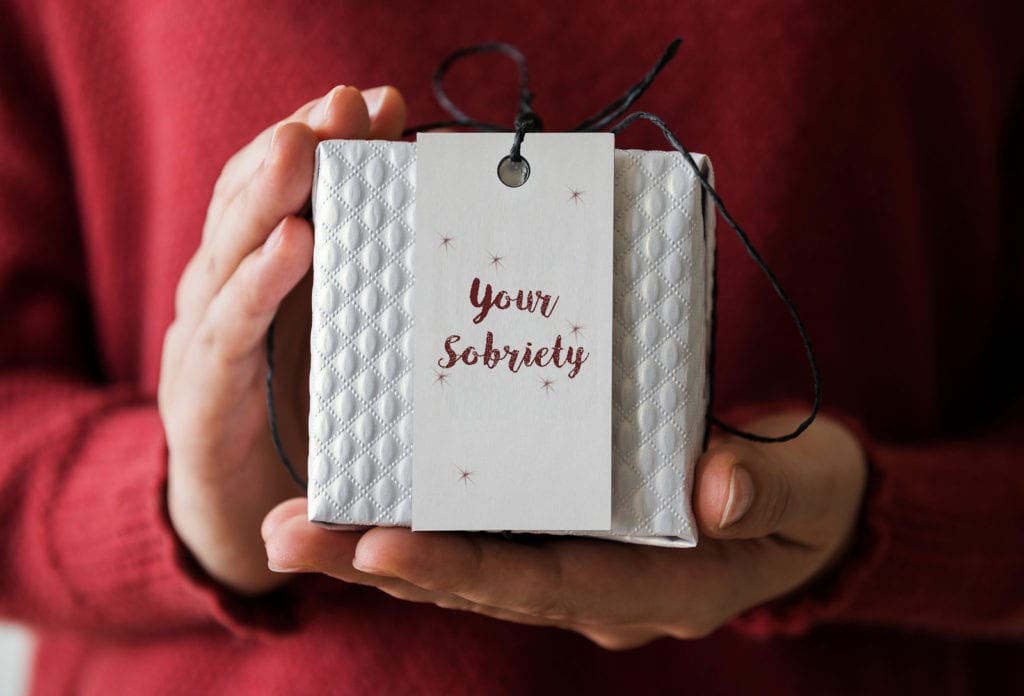We all feel fear at times.
It’s human – it’s built in; it signals danger and if we listen, we move in the other direction.
But too many people are overwhelmed with fear – it has taken over their lives. Some don’t even know it. Fear often drives people to isolation, which can only lead to more fear.
Addicts, for example, suffer from exaggerated fears. The literature on alcoholics claims they suffer from ‘100 forms of fear… the very fabric of their existence is riddled through with it’. That’s an abnormal amount of fear that makes everything look like danger.
Fear is the great divider.
It stands between you and everything that is good and whole in your life.
I know a little about fear. There was a time when ‘the very fabric of my existence was riddled through with it’. I had an anxious, fearful mother and she had good reason to be. Nonetheless, she set the stage for me to become an anxious, fearful person.
For example: In my late 20s I went on a spiritual quest to find myself. I decided I was going to go to the Queen Charlotte Islands, now known as Haida Gwaii. I knew it was a spiritual place and that I would find something there. My mother was beside herself with fear at the thought of me traveling alone with nothing but a backpack. She attempted to ‘forbid’ me to go because “don’t you know that they have the largest black bears in North America on that island?“. I didn’t know that until she decided to enlighten me on it. She was terrified for my safety. I told her she was ridiculous and that I didn’t believe that my destiny was to get eaten by a black bear at this point in my life.
Fear migrates
Fear is a funny thing. It migrates – it gets inside of you, even if you believe it’s nonsense. Her fear got into me. I spent the first two full days of my trip looking over my shoulder waiting for the enormously large black bear to come racing out of the bush and eat me alive. I was a nervous wreck. I knew I was doomed if I didn’t do something soon.
I decided to have a good talking with myself on the third day. If I continued this way, I would miss the entire point of being there – to find a connection to a creative power that exists for Good. I wasn’t there to meet my death. I needed to put aside my mother’s fears and live in my own truth. I stopped looking over my shoulder, [for the most part] and decided instead to trust that I was being guided and protected. I had an extraordinary time for the rest of the trip. I never even saw a black bear!
Are your fears real?
Some fears are inherited multi-generationally, which is true for me. My mother’s experience during WWII and the unresolved trauma and loss was passed down in many ways. Real danger must be defended against. But how much of what we fear, constitutes a real danger and how much has been fabricated, and are keeping us stuck. Think of it this way:
F. – false
E. – evidence
A. – appearing
R. – real
Like the proverbial elephant, tied to a post and walking only in circles around the post – once released many years later, doesn’t realize she is free and stays put.
Are you tied to the post?
There are so many ways that our early years shape the landscape of our fears. “I’m not good enough, smart enough, handsome enough, pretty enough….” The list can go on and on. Without a secure attachment and healthy parental encouragement, we live in fear – fear of failure, fear of success, fear of being alone, fear of being impoverished, or of being ‘too much’ for others to handle.
Too many of us spend majority of our lives trying to guard against fear-fear of flying, fear of strangers, fear of sickness, and fear of death!
Left unchecked, these fears begin to multiply and rent way too much space in our lives.

The Fear Inventory
I think it’s critical to a good life that we take a fear inventory from time to time.
We ask ourselves if we are growing spiritually or not – I mean ‘everyday spirituality’ which consists of being our highest selves in our relationships. It means working meaningfully to make the world a better place.
The worst fears of all are the unconscious ones because they are quietly and unknowingly guiding our every action.
Doing our best to make these conscious makes its easier to look our fear in the face and put them to a test.
Take a piece of paper and a pen and write down:
1. Three things that you fear the most – be curious; be honest; and be willing to admit your truth.It might be that financial insecurity is a leading fear. It might be a fear of rejection or not fitting in. It might be a fear of being alone.
2. Next to that write down where you learned that fear – where it came from in your history. List as many times or ways that this has manifested in your life, including influential people who may have had the same fears and modeled it for you.
3. Then describe how it has held you back from doing things or making decisions in your life that may have led to greater satisfaction or happiness.
4. Make a decision “yes” or “no” about whether you want to keep this fear or not.
5. Commit to a new level of awareness each time you feel the fear, to make an affirmation that replaces the fear. It could be as simple as “I am safe”. “I am loved”. “I am secure”. Whatever the words are, use them as a “power phrase” to bring new consciousness to dissolve the hold that this fear has had up to now.
You’ve undoubtedly heard it said, “there is nothing to fear but fear itself“. Even though it sounds cheesy, it’s true. Once fear is gone, all problems associated with it are gone.
Moving beyond fear
If we weren’t so afraid of our fears we would free up that energy to place into the life of our dreams, our goals and the people around us.
Conscious or unconscious – both must be looked at to be uncovered, discovered and discarded. They need to be recognized for the ‘false evidence appearing real’ that they are.
Fear can be overcome. I know this from personal experience. I also know it from helping countless others face their fears and overcome them.
If that is something you think could benefit you and your life, reaching out for professional help can be one way that you might succeed at this task.
All the best,
 ience, especially when it is different from your own. Contrary to what you may have learned growing up, there is no ‘one size fits all’ when it comes to human beings. While variety may be the spice of life, an inability to tolerate differences, makes life feel unbearable.
ience, especially when it is different from your own. Contrary to what you may have learned growing up, there is no ‘one size fits all’ when it comes to human beings. While variety may be the spice of life, an inability to tolerate differences, makes life feel unbearable.





